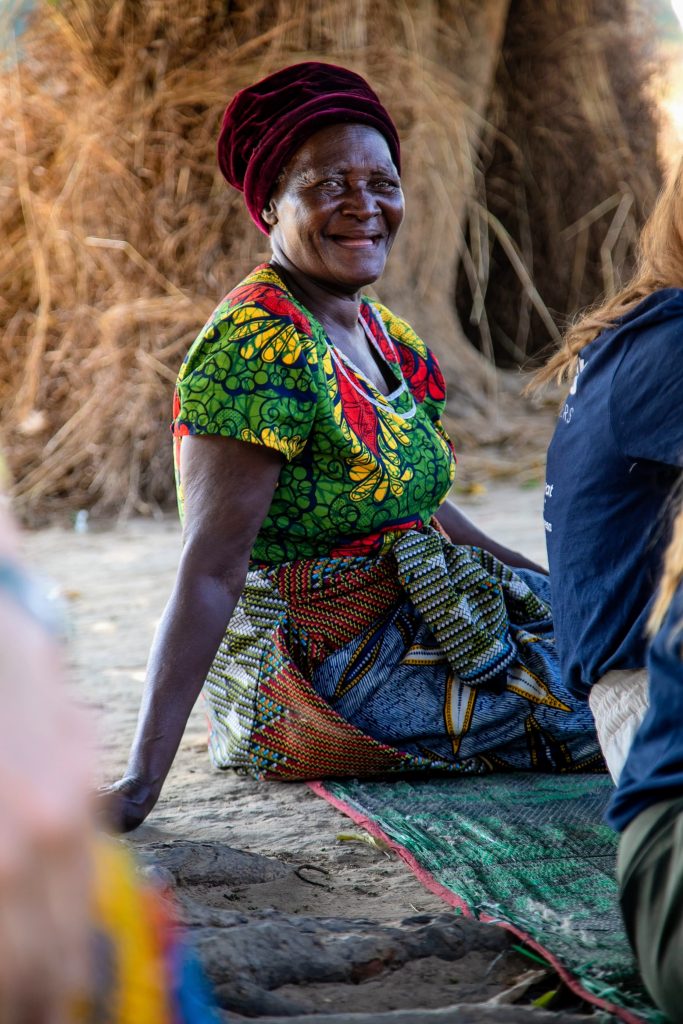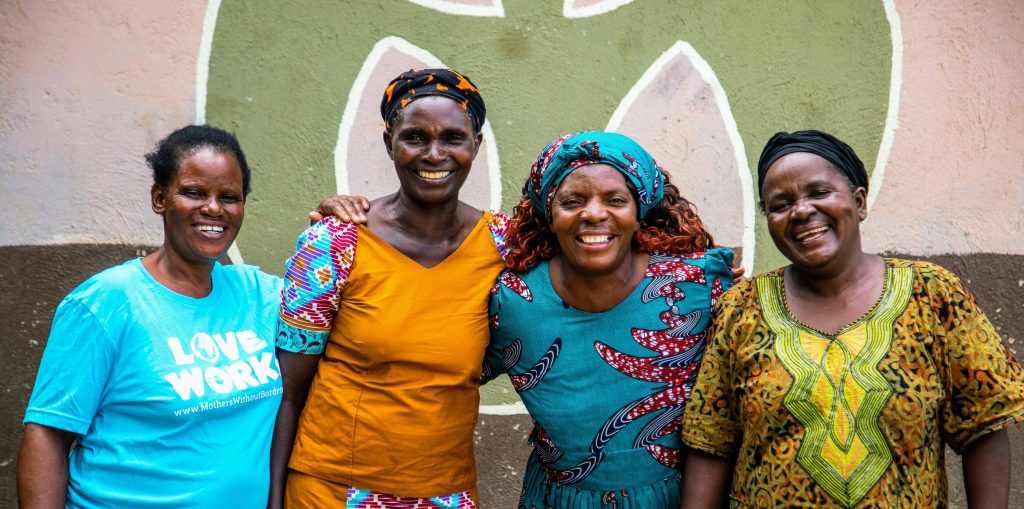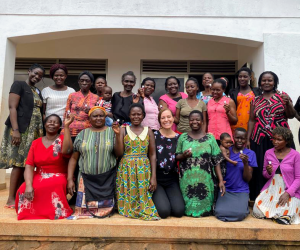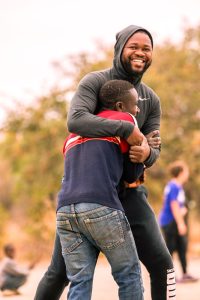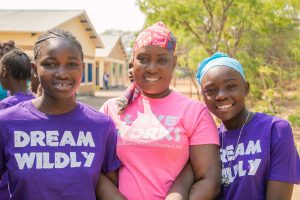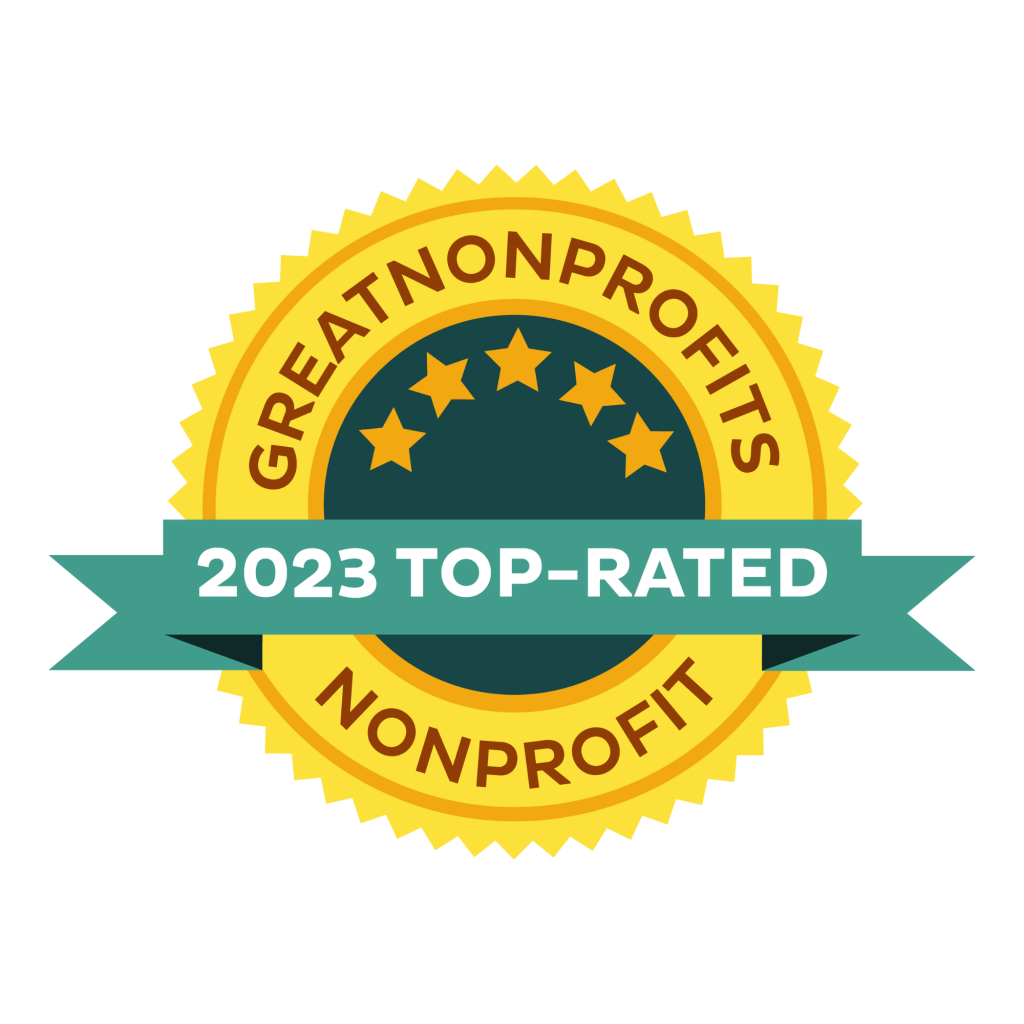I have chosen to no longer be apologetic for my femaleness and my femininity. And I want to be respected in all of my femaleness because
I deserve to be.
– Chimamanda Ngozi Adichie
Women are capable of amazing things, especially if they are able to flourish and grow. Our mission is to enable women to become the change agents of their communities. We are committed to the well-being of women in vulnerable communities and know that they have a powerful potential to become advocates for generational change.
Over the last several years, we have seen that while empowerment and educational success are intertwined for an individual, that same individual can empower their friends, family, and community. This is evident in our Women’s Empowerment clubs, a place where women can go to receive business skills training, literacy classes, access to microloans, and access to a strong social circle of engaged, empowered women.
We are excited to announce the expansion of our Women’s Empowerment clubs. In the last few months, we have opened new clubs, bringing us to a total of six women’s empowerment clubs. This initiative will enable even more women to become self-reliant and allow them to nurture their entrepreneurial skills. We hope to be able to bring this initiative to seventeen more communities, expanding our ability to empower women to grow and develop and be the change makers in their communities.
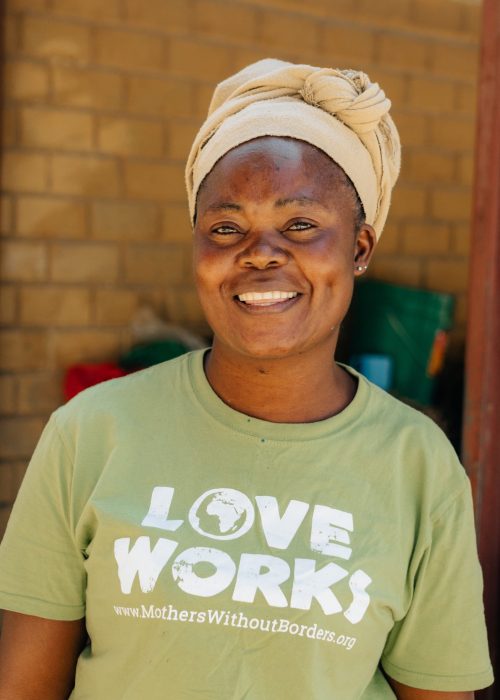
THE PROBLEM: WOMEN IN CRISIS
At the center of vulnerable communities are the women who are disproportionately affected by the issues their communities face. Gender inequality in Zambia is one of the leading factors of cyclical poverty. As a result, women face a number of barriers that prevent them from being able to find success and to in turn empower their children to find success. These challenges keep generations of women right where their mothers were: illiterate, uneducated, unempowered, and unable to create a better situation for them and their families.
One of the major ways gender inequality in Zambia exacerbates poverty is by limiting the economic opportunities available to women and girls. Marginalization of girls and women in access to education, healthcare, and job opportunities limits their earning potential and hinders their ability to break the cycle of poverty. In Zambia, only 31% of girls complete primary school and only 8% complete secondary school. This lack of access to education restricts their ability to seek future employment and stifles self-determination and confidence.
42% of girls in rural communities in Zambia are married by age 18, making Zambia the country with the 16th highest rate of child marriage in the world. Cultural norms and traditions dictate that women are responsible for domestic work and childcare, which means they have less time to engage in income-generating activities and often can only do so with the permission of their husbands. These patriarchal norms force women to abandon their own hopes and dreams in order to focus on the needs of men.
Empowering women is essential for the cycle of poverty to be broken. As a woman becomes more empowered, she can begin to shift from focusing on survival to moving forward through development and growth. When a woman believes in herself and in her dreams, her children are empowered to believe in themselves too. As a woman becomes empowered, cycles of poverty can be broken in one generation.
THE SOLUTION: EMPOWER WOMEN
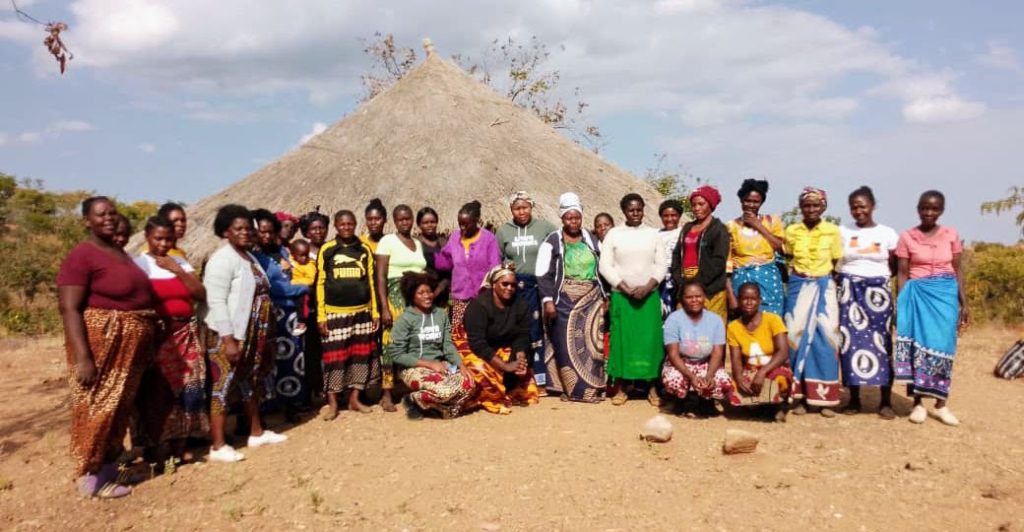
We believe that women in vulnerable circumstances can be empowered to create a better life for themselves and their families. Mothers Without Borders has established and operated Women’s Empowerment clubs in six different communities in Zambia. These clubs have a proven record of helping women learn in a safe setting, create individual businesses, and find empowerment.
Our Women’s Empowerment clubs are designed to address the root causes of gender inequality in ways that are catered to local needs. Each woman is supported through the unique way our clubs are designed:
- Locally Led and Mothers Without Borders-Supported. Each empowerment club creates their own organizational structure with an elected Chairlady, Secretary, and Treasurer. We provide the training to help these clubs establish their structure, but leave the autonomy of how to function to their local leadership. Our staff visit these clubs on a regular basis to provide training, encouragement, and support.
- Family-Centric Empowerment. We have found that when youth enrolled in our youth empowerment programs have a mother actively attending a Women’s Empowerment club, both the child and the mother are far more likely to succeed. Because of this, we intentionally place our clubs in communities where we also have youth programs.
- Access to Microloans. We provide an initial fund for each club to loan out to their members in a setting where there is positive social pressure to repay. As loans are repaid with interest, the loan fund grows and over time the club is able to offer more significant loans. We have a proven track record of repayment of the loans because the fund is owned by the women of the community.
- Business and Skills Training. Individual clubs decide which topics they would like to receive training on, including sewing, financial literacy, health, gender equity, and others. Each club’s members have autonomy in deciding their discussion and education topics, an important factor leading to empowerment.
- Social Support. Members meet on a regular basis and celebrate each other’s successes. This support means they don’t have to go on their individual difficult journey alone, which is key to success. The club also gives them access to other women who act as role models and mentors. This community-based support allows women to find strength and empowerment in each other.
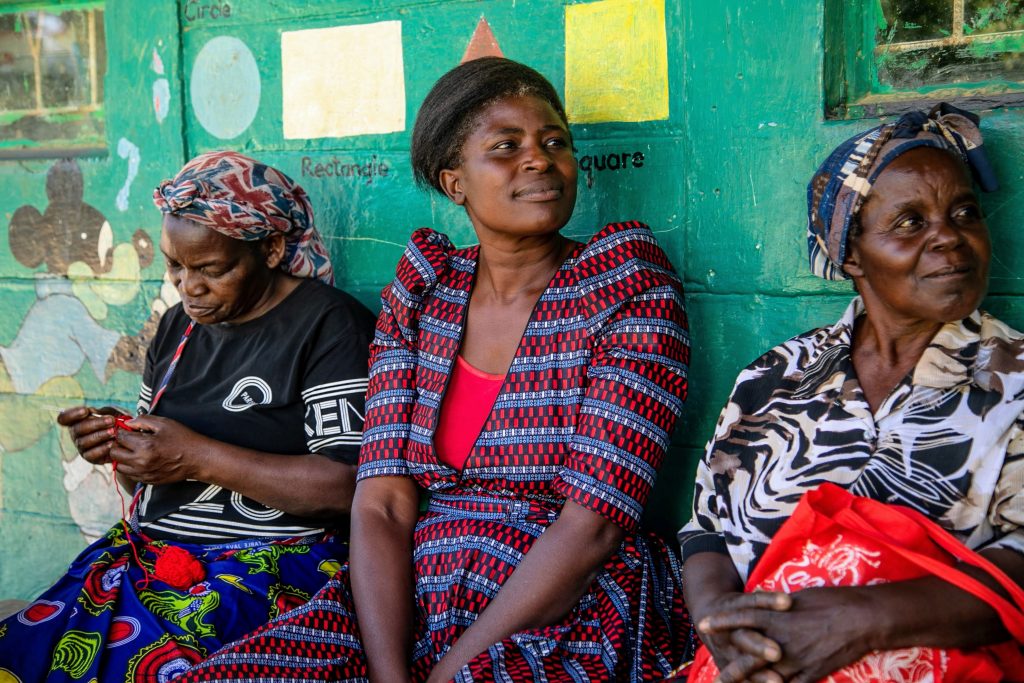
Despite the fact that the women in our clubs come from impoverished and vulnerable communities, we have observed positive impact in the following areas:
- Confidence and self-advocacy. Over time, as women learn and find success through their club, they begin to speak up and advocate for themselves and their children more.
- Gender norm beliefs change. The daughters of women in our Empowerment Programs attend school and stay in school longer than peers whose mothers are not in our Empowerment Programs. Youth empowerment has a greater effect when mothers are also being trained about the importance of education and receiving education of their own.
- Children have a better opportunity at an empowered life. The children of women in our empowerment programs have greater academic performance than their peers who do not have a mother in a club. Educational performance is directly related to empowerment in the future, and merely having a mother in the program is enough to begin the process of eradicating cycles of poverty for future generations.
- High microloan repayment rates. Because the microloan fund is owned collectively by the club, the repayment rates are extremely high. Receiving funds from your peers and local community members provides positive peer pressure and a sense of fulfillment when the loan has been repaid.
THE FUTURE: EXPANDING WOMEN’S EMPOWERMENT CLUBS
For the women in our empowerment clubs, the club has been a lifeline allowing them access to the resources necessary to build a better life for themselves and their families. Women’s Empowerment clubs allow us to take a holistic approach to empowering women and youth and protecting the most vulnerable.
We have found that when youth enrolled in our Youth Empowerment Program have a parent actively attending a Women’s Empowerment club, both the child and the mother are far more likely to succeed. Over the past three years, we have expanded our youth empowerment programs to 23 communities, but only six of these communities have a Women’s Empowerment club.
In the near future, we hope to establish clubs in the 17 communities where we already have a presence, but not a women’s club. We have 498 youth in our youth empowerment programs – imagine the intergenerational change that would occur if we could reach all of the parents of these children.
With an average cost per woman of $126 and an average cost per club of $3,150, we are able to provide microloan seed money, entrepreneurial training, meeting space and supplies, and mentorship by experienced, successful women. Intergenerational change is possible, and it starts with the one.
Learn more about our programs serving women & youth and consider how you can become a part of this important work. Each woman we work with is a beacon of light and hope, a valuable person worthy of respect and honor. Together, we can change the world.
